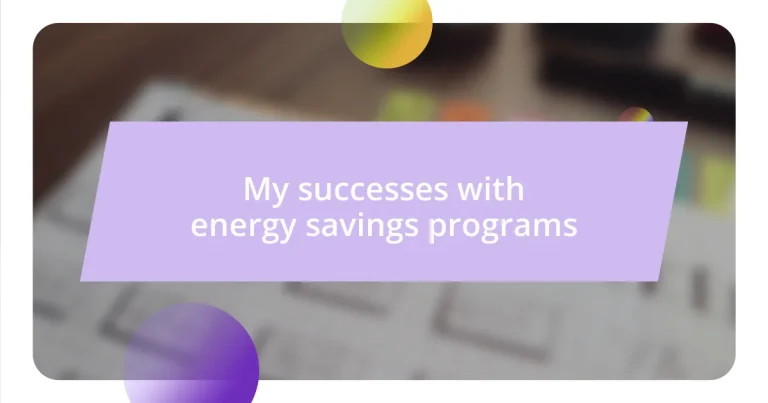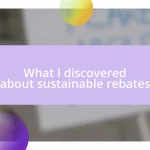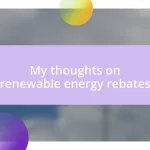Key takeaways:
- Energy savings programs can lower utility bills while promoting environmental sustainability through incentives like rebates and audits.
- Minor adjustments in energy use lead to financial benefits, reduced carbon footprint, conservation of resources, and increased home value.
- Implementing a dedicated plan, utilizing smart technology, and engaging household members can significantly enhance energy-saving efforts.
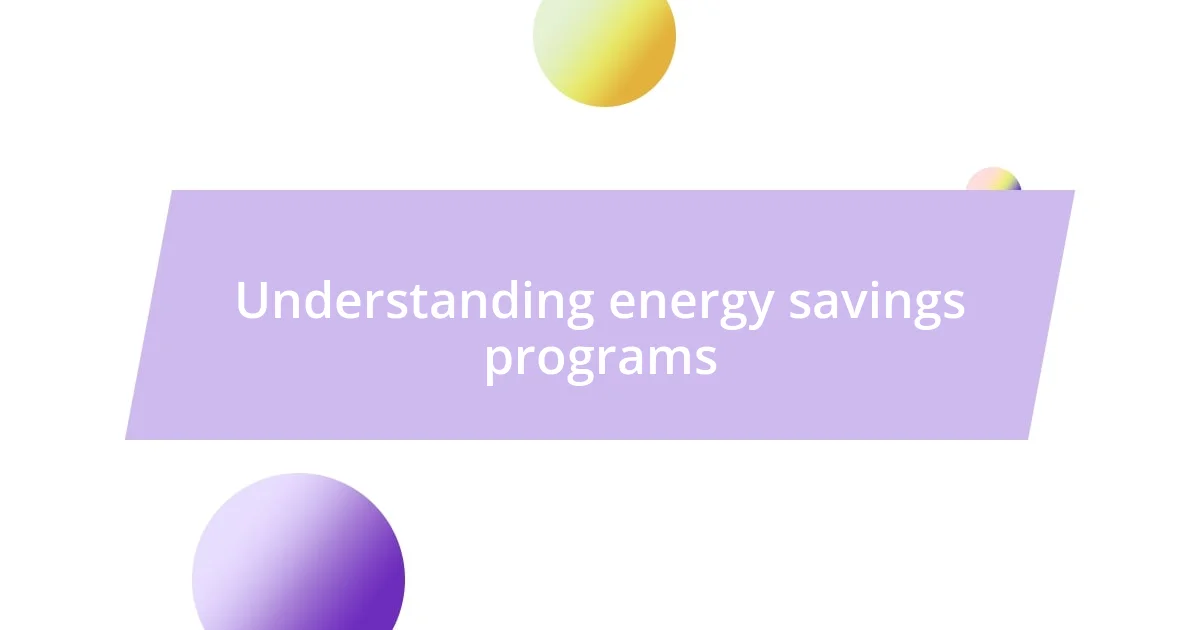
Understanding energy savings programs
Energy savings programs are designed to help reduce utility bills while also promoting sustainability. I remember when I first discovered these initiatives; it felt like finding a hidden gem in my home budget. Have you ever thought about how small changes can lead to significant savings?
These programs often offer various incentives, from rebates on energy-efficient appliances to free home energy audits. When I participated in a local program, I was amazed at how much I could save just by switching out a few old light bulbs for LEDs. It was not just about saving money; it felt rewarding to contribute positively to the environment.
Understanding these programs also means recognizing how they can vary by region. I’ve noticed that some places have more robust initiatives than others, and that can be frustrating. But digging deeper into these options has often led me to surprising opportunities for improvement—like discovering home insulation grants that I hadn’t even considered before. Thinking creatively about my energy usage has genuinely transformed my household finances.
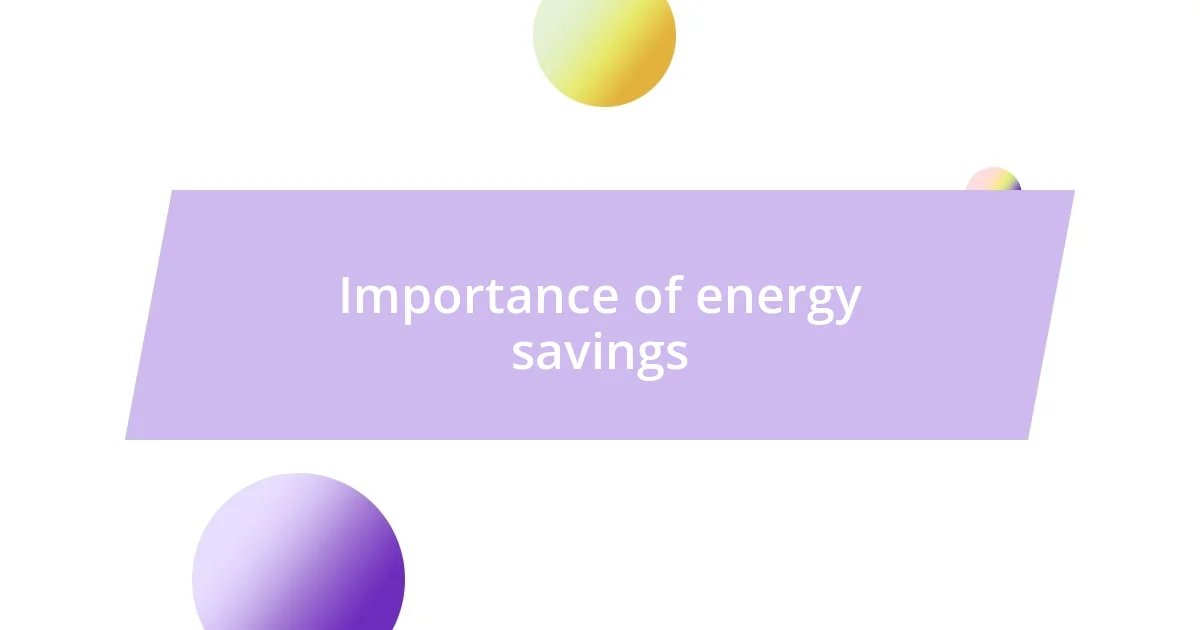
Importance of energy savings
Energy savings are crucial for both personal financial health and the well-being of our planet. I’ve learned that even minor adjustments around the house can significantly lower my carbon footprint. It’s empowering to realize that taking control of my energy consumption means I’m not just saving money, but actively contributing towards a sustainable future for everyone.
Here are some key reasons why energy savings matter:
– Reduced utility costs: Lower bills can provide more disposable income for other needs and wants.
– Environmental impact: Decreasing energy use lessens greenhouse gas emissions and other harmful pollutants.
– Resource conservation: Saving energy helps preserve natural resources for future generations.
– Increased home value: Energy-efficient homes are often more attractive to buyers, leading to a higher resale value.
– Stress relief: Knowing that I’m doing my part to reduce waste brings me peace of mind and a sense of accomplishment.
When I think back to the moment I upgraded my energy-wasting appliances, I remember the satisfaction of noticing the difference on my utility bills. It felt like I was taking a stand—not only for my savings but also for healthier living spaces and cleaner air. Each little victory in energy efficiency creates a ripple effect, making sustainable living not just a personal goal but a shared cultural value.
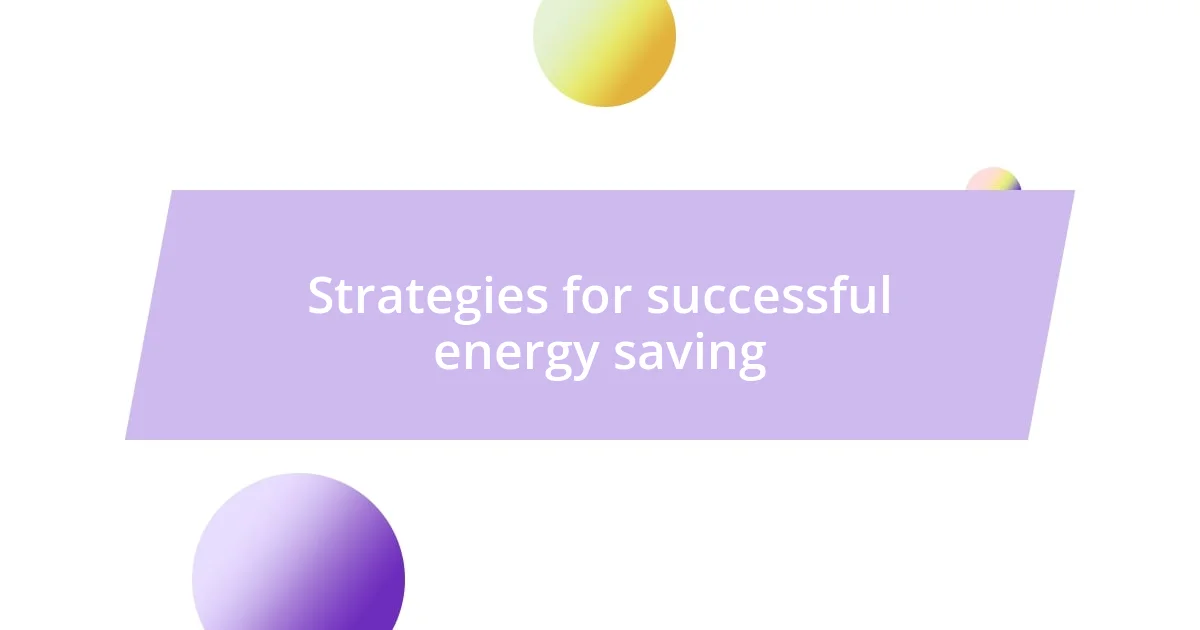
Strategies for successful energy saving
One effective strategy for successful energy saving is creating a dedicated plan. I remember sitting down with a notebook, mapping out areas in my home where I could make changes, and it turned into a real eye-opener. Have you ever tracked your energy use? Monitoring your consumption can help you identify the biggest culprits, like those seemingly innocuous electronics that continue to draw power even when off.
Another impactful tactic involves embracing smart technology. When I invested in a smart thermostat, I was pleasantly surprised by how easy it was to optimize my heating and cooling based on my schedule. It’s like having a personal energy manager! This kind of technology doesn’t just save energy; it also offers real convenience, making it almost effortless to stick to my energy-saving goals.
Lastly, engaging the entire household in energy-saving practices can significantly amplify your efforts. I’ve hosted family meetings to discuss our energy habits and brainstorm ways to save—like turning off lights in unused rooms or unplugging devices. The sense of teamwork not only motivated everyone but also brought about some truly inventive ideas, proving that collaboration can lead to greater successes. Isn’t it amazing what a united front can achieve in reducing energy consumption together?












